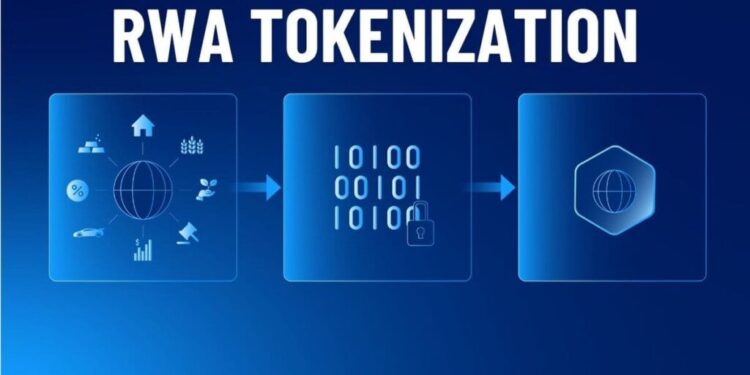Real estate has long been considered a stable and profitable asset class. However, it has also been associated with high entry barriers, illiquidity, and complex ownership structures. Thanks to blockchain technology, a major shift is underway real estate tokenization. This innovative approach is transforming the way property is owned, traded, and managed.
By combining the transparency and efficiency of blockchain with the value and reliability of real estate, tokenization is democratizing access to property markets worldwide. This article explores how blockchain empowers real estate tokenization, its benefits, challenges, and a step-by-step real estate tokenization guide for investors.
What is Real Estate Tokenization?
Real estate tokenization guide is the process of representing ownership rights of a property whether residential, commercial, or land through digital tokens issued on a blockchain. Each token corresponds to a fraction of the asset and can be bought, sold, or traded, much like stocks or cryptocurrencies.
Imagine a $5 million apartment building. Traditionally, only a wealthy buyer or institutional investor could purchase it. With tokenization, the property can be divided into five million tokens, each worth $1. This allows multiple investors worldwide to participate, gaining exposure to rental income and appreciation without having to own the entire property.
Blockchain: The Backbone of Real Estate Tokenization
Blockchain plays a critical role in enabling tokenized real estate by providing:
- Transparency – Every transaction is recorded immutably, ensuring that ownership records cannot be altered or disputed.
- Security – Cryptographic protections safeguard tokens against fraud and hacking.
- Smart Contracts – Automated agreements handle rental income distribution, compliance checks, and governance without intermediaries.
- Global Access – Blockchain enables cross-border participation, allowing investors worldwide to access markets that were previously out of reach.
By embedding trust directly into the system, blockchain eliminates the need for traditional intermediaries like brokers and notaries, reducing both costs and delays.
Benefits of Real Estate Tokenization
1. Liquidity for Illiquid Assets
Real estate is traditionally illiquid. Tokenization allows fractional ownership and secondary market trading, turning previously locked capital into more fluid investments.
2. Fractional Ownership
Investors no longer need millions to enter real estate. With tokenization, even small investors can gain exposure to high-value properties.
3. Diversification Opportunities
Fractional tokens enable investors to spread their funds across multiple properties and geographies, mitigating risk.
4. Faster, Cheaper Transactions
Blockchain-powered transactions eliminate unnecessary intermediaries, reducing fees and speeding up settlements.
5. Inclusivity and Accessibility
By removing geographical and financial barriers, tokenization opens real estate markets to a global pool of investors.
Challenges of Real Estate Tokenization
While promising, tokenization still faces obstacles:
- Regulatory Hurdles: Many countries lack clear frameworks for tokenized securities and real estate assets.
- Legal Enforceability: Tokens must be recognized as legitimate ownership rights for investor protection.
- Technology Risks: Smart contract vulnerabilities or cybersecurity breaches could affect investor trust.
- Market Awareness: Adoption remains limited as traditional stakeholders are still cautious about blockchain integration.
Real Estate Tokenization Guide for Investors
If you’re interested in this emerging market, here’s a practical real estate tokenization guide:
- Choose a Platform
Start with reputable blockchain platforms specializing in real estate tokenization. Evaluate their security, compliance, and track record. - Review Legal Structures
Confirm that the token represents enforceable ownership rights. Legal clarity is essential before investing. - Conduct Due Diligence
Assess the underlying property. Tokenization doesn’t replace fundamental checks like location, rental yields, and market demand. - Understand Liquidity Options
Verify whether tokens can be traded on secondary markets or if they must be held long term. - Diversify Investments
Spread your capital across multiple tokenized properties to reduce exposure to single-market risks. - Stay Updated on Regulations
Keep track of evolving legal frameworks in your country or region, as compliance requirements may shift quickly.
Real-World Use Cases
- Commercial Properties: Office towers, hotels, and retail spaces can be tokenized to attract a broader investor base.
- Residential Projects: Developers are using tokenization to raise capital while offering investors fractional stakes in apartments.
- Vacation Homes: Co-ownership models allow investors to enjoy both returns and shared usage rights.
- Land Development: Tokenization makes it easier for groups of investors to collectively own and develop land.
The Future of Real Estate Tokenization on Blockchain
As blockchain adoption grows, real estate tokenization is likely to become a mainstream investment vehicle. Governments are beginning to explore blockchain-based land registries, while financial institutions are testing tokenized funds and securities.
Looking ahead, we can expect:
- Integration with DeFi Tokenized real estate may be used as collateral for decentralized lending and borrowing.
- Institutional Adoption Banks and funds could launch regulated tokenized real estate products.
- Regulatory Clarity Evolving laws will bring more confidence and encourage wider participation.
Conclusion
Real estate tokenization and blockchain are together reshaping how property is bought, sold, and owned. By enabling fractional ownership, liquidity, and global accessibility, tokenization is making real estate investment more inclusive than ever before.
While challenges remain in regulation and technology, the long-term outlook is clear: tokenization is set to revolutionize property markets. For investors seeking to explore this exciting frontier, following a structured real estate tokenization guide ensures informed decisions and stronger outcomes in a rapidly evolving landscape.











